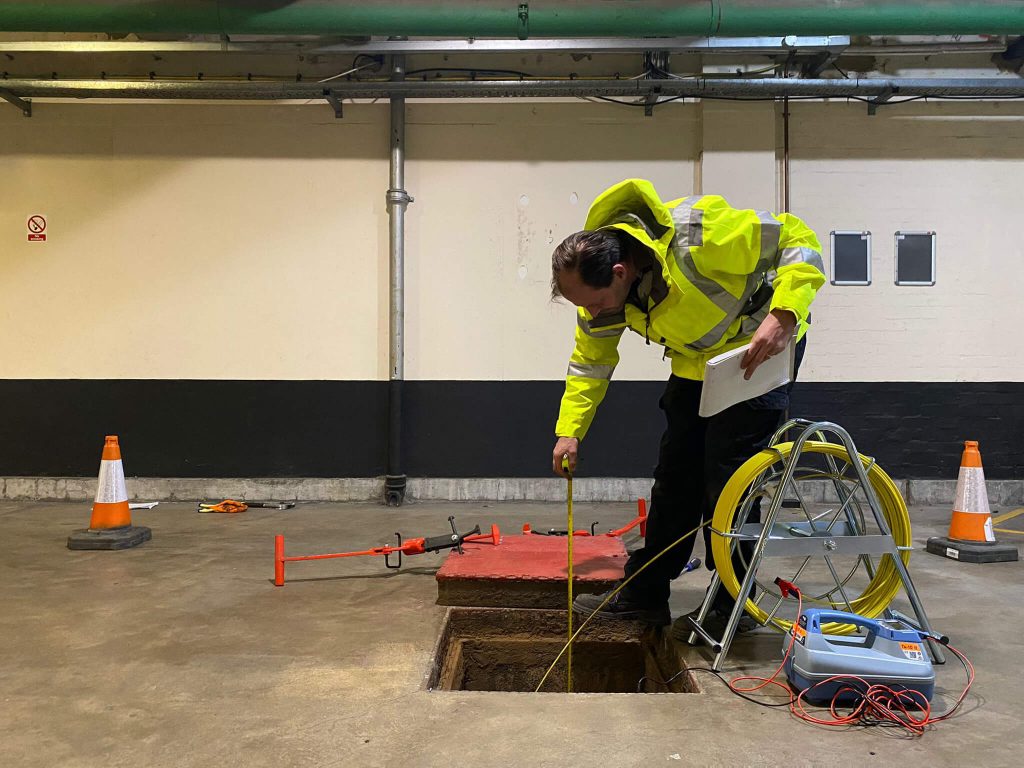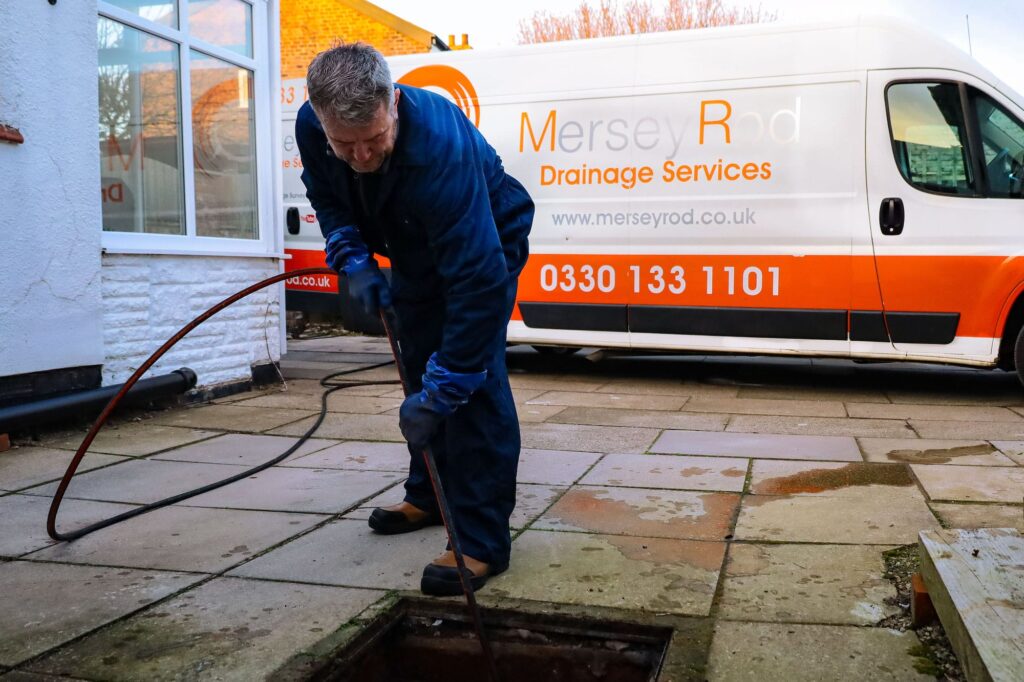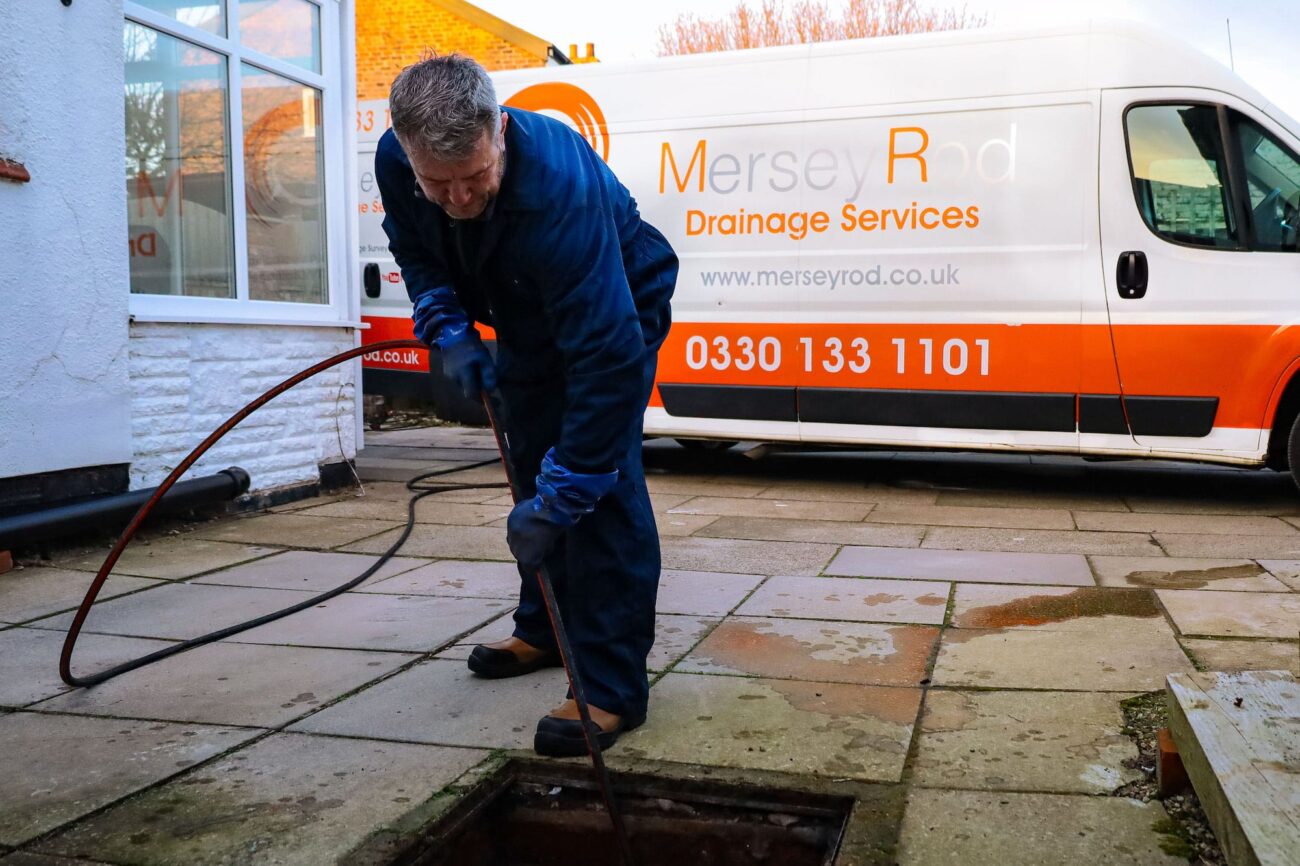Why Speed Matters in Drain Repairs
The cost of delays for households and businesses
When a drain issue crops up, time is rarely on the customer’s side. In many parts of Liverpool, older terraced housing and dated infrastructure mean blockages can escalate quickly. A minor disruption in the morning could become a hygiene risk or structural issue by nightfall. For homeowners, this often means rising costs, missed workdays, and possible insurance complications. Businesses, especially those in hospitality or healthcare, face even more pressure. Downtime can lead to cancelled appointments, spoiled stock, and damage to reputation. Time isn’t just money — it’s also peace of mind.
Common causes of drain blockages in Liverpool
Drainage systems in Liverpool face a unique mix of challenges. Fatbergs are a recurring issue in both commercial and domestic properties, often worsened by improper disposal of oil and wipes. In some cases, it’s not what goes down the drain but what’s under it. Tree roots, shifting ground, and collapsed pipework can create long-term problems that worsen slowly until something gives. And then there’s age — some systems still rely on pipework dating back over a century. With that much variation under the ground, no two callouts are the same, and speed depends on knowing what you’re dealing with from the start.
Regulatory pressures and response times
Local authorities and insurers are applying more pressure than ever to demonstrate fast, efficient repairs. Many drain companies must meet service level agreements that demand attendance within hours, not days. Meanwhile, missed environmental targets can carry fines, especially if foul waste enters public spaces or watercourses. The push for sustainability also means companies are encouraged to use low-impact methods. None of this is possible without tech-driven solutions. Quick access to data, the ability to track crews, and remote diagnostics now form the backbone of professional drainage work.
Digital Tools Driving Efficiency
Scheduling and job management apps
Old-school job sheets and paper diaries have largely disappeared. In their place, cloud-based scheduling tools now handle everything from booking appointments to assigning engineers. These platforms let teams coordinate in real time, respond to cancellations, and shift priorities on the fly. For the customer, this translates into more accurate appointment windows and less waiting around. Internally, it means fewer missed jobs and less downtime between callouts. Even small drainage firms in Liverpool have adopted these systems to compete with national contractors and meet growing expectations for speed and service.
Real-time updates and customer comms
For many residents, not knowing what’s going on is half the stress. Modern drainage firms are closing that gap with automated texts, live tracking, and follow-up reports. Engineers can update job status from their phones, send images from the site, or request help without making a call. It keeps the admin team informed and the customer in the loop. Some platforms even allow photo evidence to be uploaded before and after work, providing a visual record of what’s been done. It’s a far cry from the days of ‘someone will be there between 8 and 6’.
How GPS tracking cuts wasted travel time
Efficiency isn’t just about what happens at the property — it also includes the journey. GPS tracking on vans now allows companies to assign jobs based on location rather than guesswork. If an engineer finishes early in Wavertree, they might be redirected to an urgent call in Aigburth before returning to base. This reduces unnecessary fuel use, slashes mileage, and ensures no part of the city is left waiting unnecessarily. In addition, historical route data can be analysed to adjust shift patterns, route planning, and job distribution for long-term efficiency gains.
The Role of a CCTV Drain Survey Liverpool Customers Can Trust
What a CCTV drain survey actually involves
A CCTV drain survey Liverpool involves feeding a waterproof camera through the pipe system, capturing real-time video footage from inside the drain. It’s a far more precise method than simply guessing based on symptoms. The camera transmits images back to a monitor where the engineer can identify cracks, collapses, root ingress, or foreign objects. It’s not invasive, doesn’t require digging, and can be completed within an hour depending on the site. These surveys are now offered as part of pre-purchase home checks, insurance claims, or when a recurring blockage points to a more serious problem.

How video footage speeds up problem-solving
When engineers can see the issue, they’re not relying on trial and error. The video footage allows them to locate the exact problem area, choose the right equipment, and reduce time spent on diagnostics. If the footage is recorded, it also provides documentation for the customer or insurance provider. In many cases, customers receive a digital report the same day, complete with annotated screenshots and repair recommendations. This dramatically reduces the back-and-forth that used to follow a site visit. It’s not just about saving time on the job — it cuts delays across the entire repair process.
Integration with diagnostics and reporting software
Modern CCTV equipment is often paired with software that auto-generates reports, flags potential structural issues, and stores footage securely. For the company, it means faster admin. For the customer, it means clearer, more detailed feedback. These tools can even highlight compliance issues or catch early signs of failure that aren’t yet causing symptoms. Combined with GPS location tagging, every survey becomes part of a growing data set that helps companies predict future issues and schedule proactive maintenance. One quick survey now serves as a record for future reference, whether it’s six months or six years down the line.
Trenchless Repair Techniques in Action
Pipe relining: fast, no-dig solutions
One of the most significant advancements in drainage repair is trenchless pipe relining. Rather than excavating an entire section of garden or pavement, engineers can insert a resin-soaked liner into the pipe. Once inflated and cured in place, this forms a new pipe within the existing structure. It’s quick, clean, and avoids the need for disruptive digging. Most residential jobs can be completed in a single day, with minimal noise or waste. For older properties in Liverpool with fragile or narrow pipework, relining is often the only practical option that doesn’t involve tearing up listed features or awkward access routes.
Robotic cutting and precision repairs
In cases where hard blockages like tree roots or hardened fat require removal, robotic cutting tools can be inserted into the pipe. These remote-controlled units can navigate tight bends and apply cutting pressure with extreme precision, all without excavation. It’s especially useful in commercial settings, where floor slabs, kitchens, or car parks might sit above the drainage system. Robotic cutters reduce the need for demolition and speed up repairs significantly. The same technology is used to trim excess liner material after a reline, ensuring water flow is maintained and preventing future snags.
Benefits over traditional excavation
Excavation still has its place — especially in complete system replacements — but trenchless techniques often offer faster turnaround, lower disruption, and reduced cost. For customers, the difference is stark. No piles of soil, no loud machinery, and no waiting days for surfaces to be re-laid. For companies, it means fewer labour hours and less exposure to underground surprises like unknown cables or pipes. Most importantly, it allows engineers to focus on fixing the issue itself rather than the mess that comes with accessing it.
Data and Predictive Maintenance
Using AI and sensor data to flag risks early
Drainage isn’t just reactive anymore. Some Liverpool companies now use remote sensors and AI-based analysis tools to monitor flow rates, water levels, and even pressure fluctuations. These tools can detect subtle anomalies that suggest an impending blockage or crack. In high-risk environments — like hospitals or older multi-occupancy housing — this data becomes vital. Alerts can be triggered before a backup happens, allowing for planned intervention instead of emergency callouts. It’s not yet the industry norm, but adoption is growing rapidly, especially among firms with commercial maintenance contracts.
How historical drainage maps are being digitised
Liverpool’s infrastructure is patchy when it comes to documented drainage layouts. In many older neighbourhoods, paper plans are missing, vague, or flat-out wrong. Modern drain companies are scanning and digitising these records, often adding GPS-based mapping from their own surveys. Over time, this creates a clearer picture of underground networks. Digitised maps reduce delays caused by unknown pipe paths, help avoid accidental damage during repairs, and support more accurate quoting. They also make it easier for engineers to return to past job sites and understand what’s been done before.
Preventing major repairs before they’re needed
By combining CCTV data, sensor readings, and historical job records, some drainage firms now offer predictive maintenance packages. These aren’t just scheduled clean-outs — they’re targeted interventions based on evidence of wear, blockages, or weak points. For commercial clients, this can prevent shutdowns or loss of business. For residential customers, it avoids the shock of major repair bills. It’s a shift in mindset from emergency fixes to smart upkeep. With the right data, drains become less of an unknown hazard and more of a managed asset.
What to Expect from Modern Drain Companies Liverpool Residents Rely On
Faster response times as standard
Gone are the days of waiting a week for a drainage appointment. Thanks to better route planning, mobile diagnostics, and live scheduling, many Liverpool firms can now attend the same day or within 24 hours. In some cases, booking can be done entirely online, with time slots visible in real time. These aren’t just perks — they’ve become expected. Faster repairs reduce damage, improve hygiene, and build trust. And for landlords or commercial clients, it also satisfies insurance terms and legal requirements around property maintenance.
Transparent pricing backed by data
Technology hasn’t just improved speed — it’s also helped with clarity. Digital reports, video surveys, and time-stamped job logs mean companies can justify their prices with evidence. Rather than vague descriptions of “a blockage cleared,” customers now receive detailed breakdowns of what was found, how it was fixed, and whether further action is needed. Some firms even provide digital invoices linked to video evidence or GPS data. It builds confidence and removes the guesswork, especially for clients unfamiliar with drainage work.
What’s Next for Drainage Tech in Liverpool?
Growing demand for greener, faster services
As awareness around sustainability grows, drain companies in Liverpool are being pushed to adapt. That doesn’t just mean switching to low-emission vans or biodegradable cleaning agents. It also includes how quickly jobs are completed, how much disruption is caused, and how repairs hold up over time. Customers are more likely to ask about eco-friendly solutions, minimal digging methods, or recyclable materials. Speed and sustainability are no longer at odds — the best companies are making them compatible.

Collaboration with local councils and developers
Several drainage firms are now working more closely with local authorities, housing associations, and property developers. New-build sites are incorporating sensors and mapping systems from day one. Older estates are being surveyed in bulk using mobile CCTV units and centralised reporting tools. It’s a smart way to reduce emergency repairs and build resilience into Liverpool’s infrastructure. With more joined-up thinking and better data, whole neighbourhoods benefit — not just individual properties.
The human side of tech adoption
For all the smart tools and robotic cutters, it’s still people who make the difference. Engineers need training, support, and time to adapt. Liverpool’s most successful firms invest heavily in staff development, equipping their teams not just with gear, but with knowledge. The ability to explain a CCTV report clearly, recommend the right repair without upselling, or make tech feel reassuring instead of intimidating — that’s where trust is built. As tech continues to evolve, so will the expectations around service, professionalism, and clarity.
Training the next generation of engineers
As technology plays a bigger role, recruitment in the drainage industry is shifting. Companies are no longer just looking for manual skill and physical resilience — they’re hiring for digital fluency. Young engineers are being trained on how to operate robotic equipment, interpret CCTV data, and update customer systems on-site. This new wave of technicians often arrives with strong IT skills, able to adapt quickly to software platforms and diagnostic tools. It’s changing how the job is seen. What used to be a trade rooted in physical labour now shares ground with data handling and digital reporting.
The role of local expertise in tech adoption
Tech helps, but local knowledge still matters. Understanding Liverpool’s road layouts, typical drain setups, and historic pipe materials gives engineers a real advantage — especially when time is short. While software might highlight a recurring issue, a technician who’s worked the same streets for years may spot patterns a machine can’t. The best results come when local experience and digital tools work side by side. It’s not about replacing intuition, but enhancing it.
Continuing pressure to modernise
The push toward digital isn’t letting up. Insurance providers, letting agents, and even mortgage companies are beginning to expect visual proof of repairs or pre-sale drain checks. Drainage firms that can’t offer digital reports or time-stamped footage may soon be edged out. Meanwhile, regulatory bodies are updating their guidance around evidence-based repairs and transparent reporting. For companies operating in Liverpool, keeping pace with tech is no longer optional — it’s part of staying in business.
